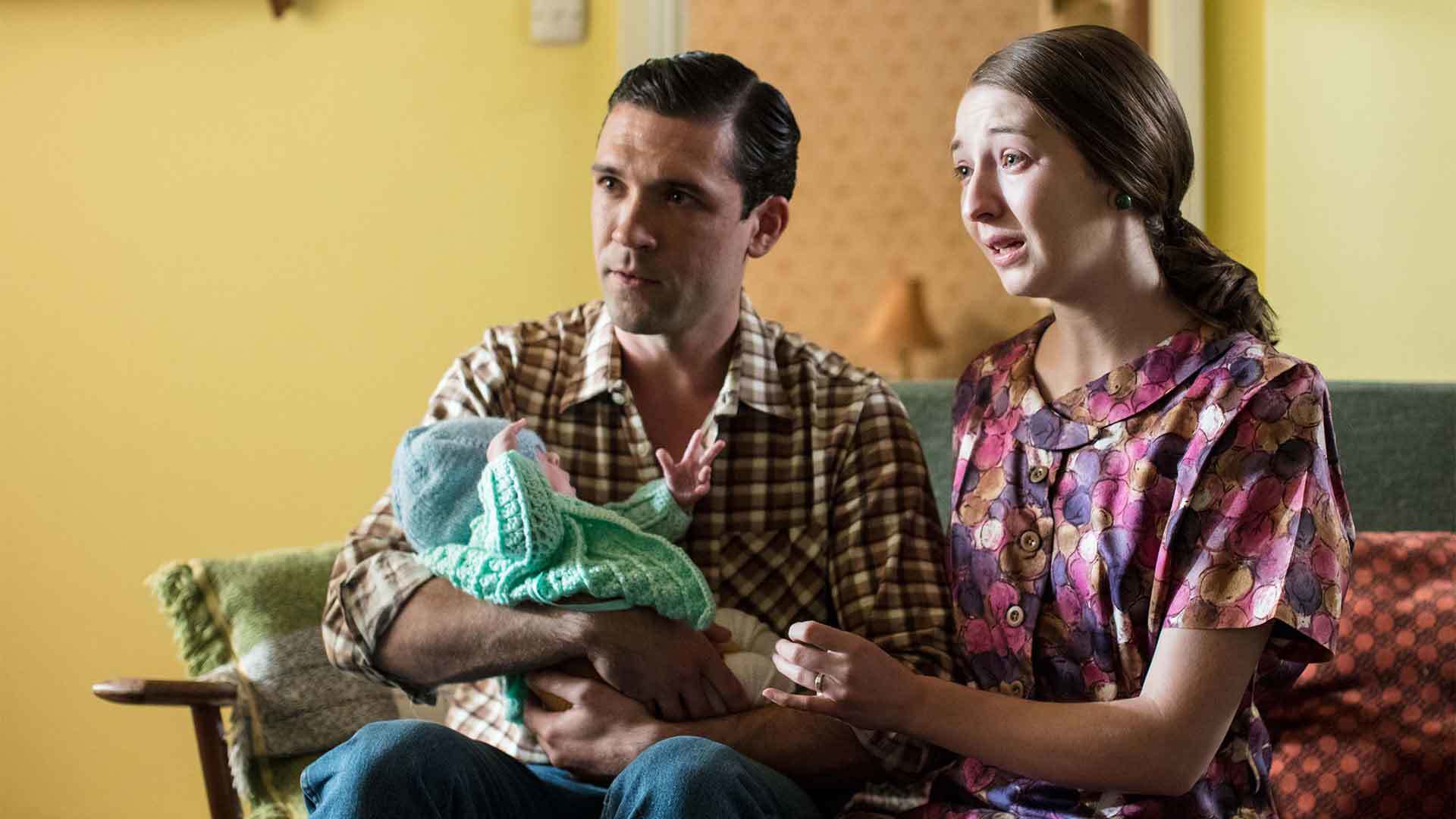
As season 8 of Call the Midwife opens, I feel like I’m settling in and catching up with my old friends. Watching a birth, both in-person or on the show, never fails to affect me. I found myself immediately tearing up with the birth of Lesley Whyte’s sweet new baby, much in the same way that I find myself often still overwhelmed with emotion at nearly every birth I attend. The absolute miracle of new life is never lost on me.
As overjoyed as I was to observe Lesley’s birth, I knew something was up almost immediately with her sister, Cath. I had suspected that she might be pregnant. Cath wasn’t married, and she was pursuing a modeling career. An unplanned pregnancy would completely overturn all of her plans and goals. I wasn’t that surprised to learn that she had sought out abortion services, although I did worry for her after I saw her in pain, looking pale and clammy, after “seeing a woman” for abortion services. Back in the 1950s and 1960s, since abortion was illegal, the majority of women seeking abortions had to do so with lay providers. The process, as Lesley later found out, was very secretive, in order to protect the identity of the abortion provider. However, without regulation, many women ended up wounded, sick, and even died because of infection or injuries related to these “kitchen-table” procedures.
That’s the thing about making abortion illegal. It’s not going to stop happening, it’s just going to stop happening safely. As long as people have been getting pregnant, there have been other people who are willing to help them end an unwanted pregnancy. There are countless reasons people might choose abortion, and I’m not here to get into that debate. It’s not any of my business why people choose what they do, but it is my business to support everyone I care for, free of judgement, and provide safe, respectful, trauma-informed care.
Nurse Valerie’s immediate gentle acceptance of Cath into her care, immediately letting Cath know, “I don’t care how this has come along, I am going to take care of you,” made me proud to be a nurse. In this profession, our job, no questions asked, is to provide the best, compassionate care for every patient. I can only hope that when I’m providing care to clients, that I do so in the same calm, gentle manner that Valerie did for Cath that night. The one thing that keeps on standing out in my mind from this episode is Sister Julienne’s answer to Valerie, when she is questioning whether or not they did the right thing by taking in Cath that night. “The word ‘midwife’ means ‘with woman,’ and the woman in that situation needs somebody by her side, whatever mistakes or choices brought her to our door.” If a nun can put aside all personal beliefs in order to provide empathetic and compassionate care for her patient, I think all nurses can do the same. I’m not sure if fictional characters always make the best role models, but in this case, I hope to always provide care the way that Valerie and Sister Julienne did for Cath that night.
I have one final digression today. You may have noticed in the title of this blog post that I spelled it “womxn.” That’s not a typo. There’s a great article here about why using the spelling of womxn is much more inclusive, because it includes “transgender womxn, womxn of color, womxn from Third World countries, and each different self distinguishing womxn out there” (Knotty Vibes, 2018). Because here’s another thing that I don’t feel is ever up for debate: it is my job as a midwife to provide care for ALL WOMXN. Anyone who identifies as a womxn. Anyone who may have a uterus and ovaries but does NOT identify as a womxn. It is our duty as midwives and health care providers to use preferred names and pronouns, and provide inclusive, safe, respectful care to every single womxn and person that we care for. I can’t see a time in the near future where we don’t still talk about midwifery as being “with womxn” but I think that slight spelling change reveals what midwifery can grow to be, which is more inclusive.